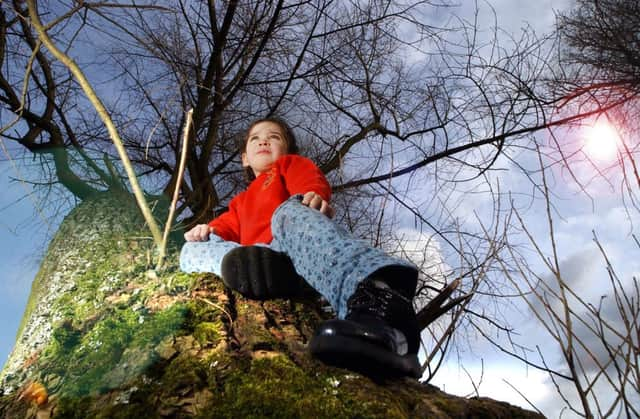Let’s create nation of wildlife lovers


Remember the first time you saw a red squirrel or a salmon leap, or witnessed birds flying silhouetted in the sky at sunrise or sunset?
These amazing experiences are free and readily available to all as part of the everyday natural world; and children today enjoy them just as much as I did when I was growing up.
Advertisement
Hide AdAdvertisement
Hide AdPopular Christmas gifts this year included the latest gadgets, toys and games linked to TV and film franchises and of course the next generation of mobile phone and computer devices.
However, the amount of time we now spend focused upon “screens” and social networks, for example, is becoming a concern and where is that time coming from? It is the time that used to be for playing and going outdoors.
The Royal Zoological Society of Scotland (RZSS) is in the unique position of being able to offer a diversity of learning opportunities that engage with all age and ability groups, across all Scotland.
Using our two visitor attractions, Edinburgh Zoo and the Highland Wildlife Park, we are able to provide an inspiring and exciting insight into the world and its wildlife, both locally and globally.
A multi-sensory experience (often it will be the smell or sound of an animal that will be just as memorable as the sight of it), it is the foundation for building an awareness and understanding of the world and how to care for it.
From this it is important to focus learning and to provide opportunity for teachers and students to develop real knowledge and understanding that will hopefully inform their decision and way of living in the future.
In Scotland we have the Curriculum for Excellence, an educational philosophy which aims to developing young people into successful learners, confident individuals, responsible citizens and effective contributors.
The education programmes of RZSS enable these attributes to be developed and our Global Classroom initiative brings groups of students from different schools together for a day of workshops focused on a particular topic area, such as sustainability and conservation.
Advertisement
Hide AdAdvertisement
Hide AdFor example, a message about recycling and resource use can be interwoven with an endangered species that they can see at the zoo, and by creating enrichment “toys” or feeders for some of the animals from waste materials, we have a practical engagement that helps bring learning to life.
As a charity, RZSS is grateful to the trusts and corporate supporters that help us provide our learning materials, lessons and visits at low cost – and in some cases free of charge.
This support and that of our general visitors has meant easier access to our learning activities for children, from the inner city and from rural remote areas.
In more remote parts, going outdoors is easy, but finding ways of focusing and connecting children to nature and to a national and global perspective is more challenging.
The RZSS outreach education programme has been designed to provide this focus and at the moment we are visiting schools across the country, from Edinburgh to Skye, and Glasgow to Shetland with our Beyond the Panda class activity that enables pupils to discover more about China, giant pandas and to think about their own environment and wildlife.
Where appropriate, we will use modern technology to get to the audiences that we want to motivate to get outdoors.
For example, we have conducted activities through the Scottish schools intranet service, making live broadcasts to schools. We have even conducted international live links with people in other parts of the world, giving students the opportunity to ask each other questions about their wildlife and lives.
From an acorn, an oak tree can grow, and from a child’s experience of nature, both at the zoo and out in the countryside, in a park or patch of green space, or even just via a carefully tended window box, a caring, responsible, environmentally friendly citizen can be made.
Advertisement
Hide AdAdvertisement
Hide AdIn time, that young person becomes the future and by giving them the opportunity to experience and appreciate nature at close hand, we are one step closer to helping our world remain a wonderful world for generations to come.
• Stephen Woollard is head of discovery and learning, the Royal Zoological Society of Scotland